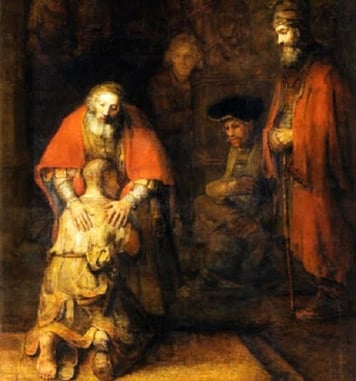
(To listen to the podcast as you read, and to hear the complete song, Reunion, at the conclusion, click here.)
In 1990, I was a 19-year-old visiting the art museum in St. Petersburg, Russia, and it would be years later before I would understand the importance of that visit. You see, this museum called The Hermitage contains many of the most famous paintings in the world, among them is the Rembrandt painting named, “Return of the Prodigal Son.”
In the 1660’s Rembrandt painted the image of a younger man kneeling in shame, falling into his father’s embrace. The hands of the father seem to be a focal point of the piece. A powerful sense of love and forgiveness radiates from this work. This master artist was moved deeply by God’s posture of love and forgiveness toward us, we read in Luke, chapter 15, and so he painted what some argue is his most profound and significant piece of art.
Almost twenty years after I saw this painting myself, I wrote a song called “Reunion.” Like Rembrandt, I was inspired by the same words of Jesus in Luke 15. This more progressive song was my effort to put the story of the prodigal son into perspective from the Father’s point of view.
Let me paraphrase Luke 15 where Jesus tells us this account.
This is the story of a young man who didn’t want to wait around for his father to die to get his inheritance, and so he dishonors him by demanding his portion and leaves his father’s house. This young man goes to a foreign land where he squanders all his money on wild living. When all his money is gone, his friends disappear too.
Desperate for a way to live, he ends up a worker feeding pigs. He had slid down so far that he longed to eat the scraps that the pigs were eating. No one was helping him or giving him anything. Jesus says that when he came to his senses, he said,
‘How many of my father’s hired servants have food to spare, and here I am starving to death!’
So, the young man set out to return to his father’s house.
Jesus tells us this son is rehearsing a speech for his father. It goes something like this: ‘Father, I have sinned against heaven and against you. I am no longer worthy to be called your son; make me like one of your hired servants.’
But while he was still a long way off, his father saw him and was filled with compassion for him; he ran to his son, threw his arms around him and kissed him. The son begins by saying to his Father,
“Father, I have sinned against heaven and against you. I am no longer worthy to be called your son.”
While the son was still trying give the rest of his speech, his Father interrupts him, and calls to his servants to have them quickly bring the robe and put it on him. He instructs them to put a ring on his finger and sandals on his feet. The father tells them to kill a fattened calf to begin a feast and celebrate. He says,
“For this son of mine was dead and is alive again; he was lost and is found.”
Here are a few observations to help us understand the power of love and forgiveness that God has for us. They are embedded in this story that Jesus tells. In this parable, God is the Father, and we are cast in the role of an entitled dishonorable child.
- This man has two sons, the younger one asks for his share of his father’s estate –this would be roughly a third of all that the family owned, including property. Such a request would put the father at great risk of having enough in his old age. This also caused bitterness in the older son and dishonor on this man’s family throughout their village. It meant that this younger son would take even part of their land, sell it off, probably for a reduced price, and shirk any future responsibility to caring for his aging parents or protecting the family business.
- The older son later in the passage actually tells us that the money was spent on prostitutes in part. This makes his squandering of hard-earned money even more disgusting.
- The prodigal son finds himself feeding pigs, which were considered an unclean animal to Jews. He is beyond desperate and far from his own culture and obedience to God.
- When the son decides to return, his plan is to return as a servant instead of a son.
- This young man is also taking a big risk returning home. You see, if a Jewish man took his inheritance and wasted it in some non-Jewish nations, upon returning, the village would greet him with a ceremony called Kezazah. They would throw a clay pot on the ground in front of the man, shattering it and saying his name, “You are now totally cut off from your people.” This is a corporate community wide disowning and punishment and abandonment.
- The Father in this account, then runs to his son when he sees him. Why? I think because he wants to intercept him before a Kezazah ceremony can begin. It was very shameful for a man in that culture to hike up his robe and run; it would mean that you would expose your bare legs and dishonor yourself. A grown man, especially a patriarch, would never run in the Jewish culture. But the father is willing to take the shame to spare his son from being officially cut off from their community.
- The Greek word here for running is used in reference to foot races. I think the father knew he needed to beat the others from their town to his son in order to keep his son from being physically assaulted and cut off.
- When the father tells his servants to quickly put the best robe on his son, it would likely be his own robe used in weddings and other formal occasions. It represented belonging to the family. He was sending a message to the entire community that this is my son who still belongs to us, that we’re not abandoning him, we are not expelling him from our presence. And then he's given a signet ring which would carry the authority of the family, a sign that he is a son. This way he would be able to approve monetary expenditures and business. It was a reestablishment that he had full authority as a son. The need for sandals shows that this young man doesn’t even have shoes after his season of wild living.
With all that background in mind, let’s get to the song.
The first verse of this song points to the younger son’s desire to be liked by his friends. In my imagination, he thinks that if he has money, he will have friends. So, he goes on a journey to find friends that are far from his own home. In this way he is creating a whole new image for people to see, away from any accountability or any others who would remind him of his upbringing. It’s just interesting that sin and doing what is wrong is so much easier when there is no one that you have to answer to.
The second line of the song indicates that we pick up the story in a field of pigs as recorded in Luke 15.
“You never thought that this place would be where your journey ends.”
At this point, the son is in the depths of despair, defeat and shame. He has turned his back on his family and his faith. This is a desperate situation where he might actually die of starvation.
In the midst of this valley of the shadow of death, “the road less traveled” calls to him. This is a reference to a Robert Frost poem called, “The Road Not Taken.” Frost ends this poem by saying, “I took the one less traveled by, and that has made all the difference.”
No matter how far we have fallen into the ways of this world, God is always calling us, asking us to come home, offering the road less taken, the road less traveled. He knows our name and is always wooing us back to himself. Here’s verse 1 -
Verse 1
All you ever wanted was a friend to spend some time with
You never thought that this place would be where your journey ends
You have run so far from all the things that you believed in
The road less traveled calls to you, no matter where you’ve been
And once again… I’m calling out your name
Since this song is sung from God’s perspective, He is represented by the Father in the story. It is the Father that sings this chorus and he is longing for his son to come back home. He already has a plan in his mind to run to his son before he enters the village to greet him. His plan is to welcome his son back before the Kezazah ceremony can take place. This Father keeps his heart toward his son, even though it is broken over his decisions.
Chorus
I will run to you, when you come back, no questions asked,
You will run into, into these arms of love
My father’s heart is crying out, for you to come back, and hear me shout,
I will run to you, when you come back home again
Verse 2 describes the pain of waiting for his son to return. The Father declares that his love has not changed for his son. In his heart the Father has dreamed of a “reunion” with his son – this is where the title of the song comes from.
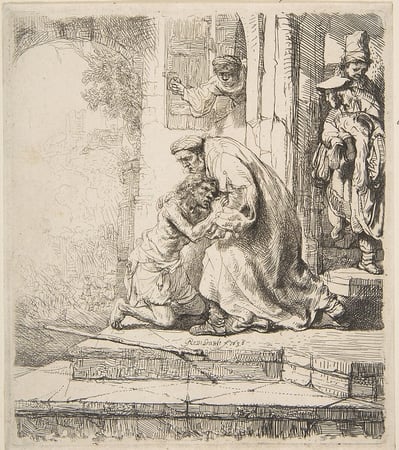
In my mind’s eye, I imagine the father sitting on his rooftop or in the window watching the horizon and hoping that today will be the day that he recognizes the distinctive gait of his son’s walk coming up the road. In this verse the Father calls his son “friend.” This is an allusion to Jesus declaring that we as his followers are not servants but we’re called his friends.
This part of the song says the Father is calling out his name. The Lord is always speaking and using others to share his heart with us. I imagine an earthly father praying for his lost, wayward son, calling out his name in prayer and telling him to come back home.
The last phrase of this verse paints the picture of how I believe the father sees his son walking back toward home.
“In the Sunset, it’s your silhouette that’s walking back to me”
So, here is the son, slowly walking back, maybe limping back barefoot, dreading facing his father, the town, and the dishonor. This is contrasted with the Father seeing his son a long way off, jumping up in anticipation and running to greet his son, racing the others in the town to get there first.
Verse 2
The days turned into years, that I have longed for your returning
I will always love you, that will never change
So many sleepless nights that I have dreamed of our reunion
I am watching the horizon, I am waiting for my friend
And once again… I’m calling out your name
In the Sunset, it’s your silhouette that’s walking back to me
The bridge turns the focus from storytelling to an invitation from the Heavenly Father back to us. Though this song may be heard by a lonely person who is still feeding pigs, our Father says, all hope is not lost and that He is willing to take a step toward us, if we choose to take a step toward him. The concept of God making a way where there is no other way works itself into one of the most gut wrenching phrases I have ever written:
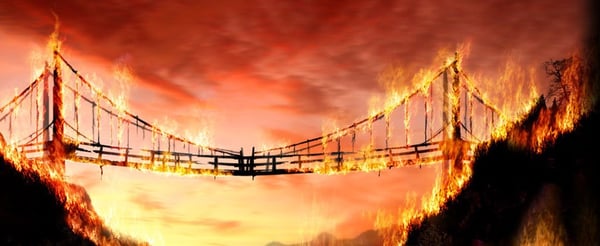
“The smell of burning bridges might discourage your returning
But I have built them back for you, and I have paved the way”
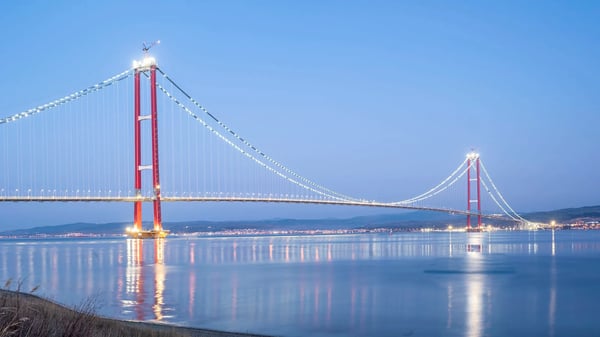
When we have walked away from God and burned the bridges behind us, we believe the lie that there is no way back. The most amazing thing about God is that He is willing to forgive and build back the bridges for us to return to Him, every single time.
Here is the call to come home in the bridge:
Bridge
You’re so far away from home, feeling lost and on your own
It seems all hope is lost for you, but I will see you through
The smell of burning bridges might discourage your returning
But I have built them back for you, and I have paved the way,
“The smell of burning bridges might discourage your returning.”
These words were supposed to signal the loss and pain of looking back at the destruction our poor choices have caused. The pain of regret and wishing we could back and change things. It can linger like the smell of fire. I am all too familiar with the scent associated with a wildfire.
Nine years after I wrote this song, we experienced one of the worst natural disasters in US history and the ironically named Camp Fire tore through our land here in Northern California. We watched a historical monument in our area, a covered bridge, be completely destroyed by fire. This was a catastrophic loss because it was the last of its kind dating back to 1886.
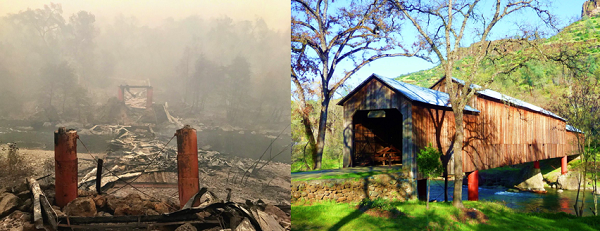
The bridge is being slowly rebuilt and the day that it is finished will be a great day of celebration, celebrating the restoration of something that was lost.
In the verse right before this passage about the lost son in Luke 15, Jesus says,
“There is rejoicing in the presence of the angels of God over one sinner who repents.” (Luke 15:10)
This song reminds us of the great love of our heavenly father. It gives us hope and reminds us that God’s heart is for us, no matter what we’ve done or how far we’ve run from Him. So, be encouraged as you listen to this song, “Reunion.”
We invite you to come worship with us at Neighborhood Church in Chico.
Our Sunday Morning Worship Service at 10:00 a.m. is in the Dome.
You can live stream our service on Facebook and YouTube at 10:00 a.m.
Need encouragement? Text the word Encourage to 530.296.3689 to receive an encouraging scripture or quote from me several times a week that is sent right to your phone.



